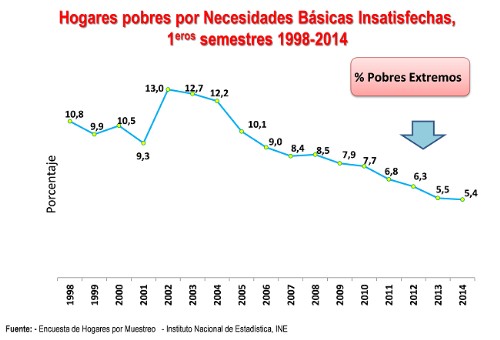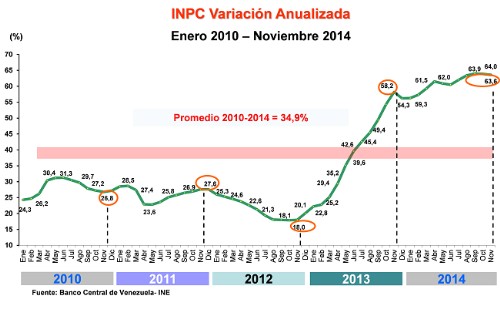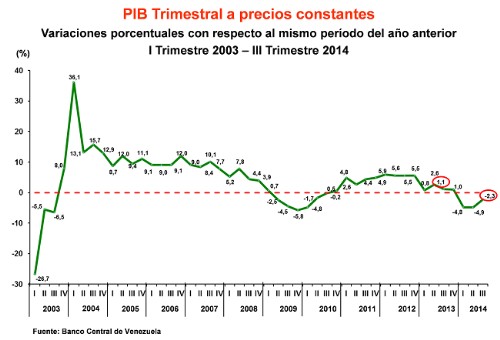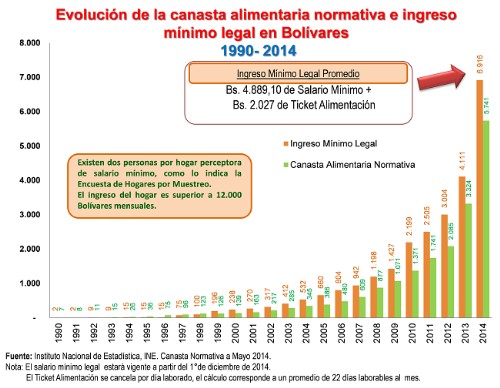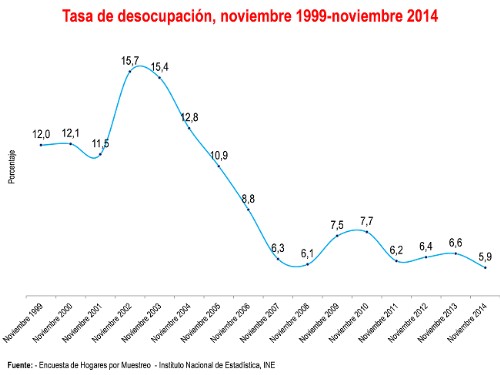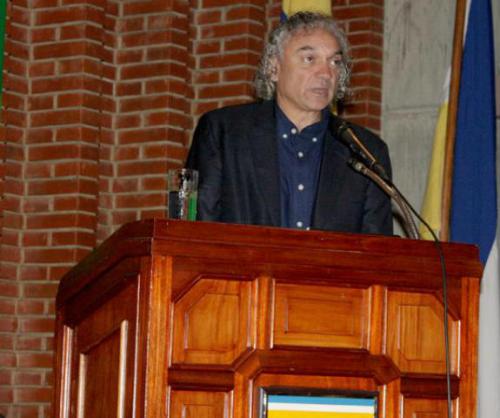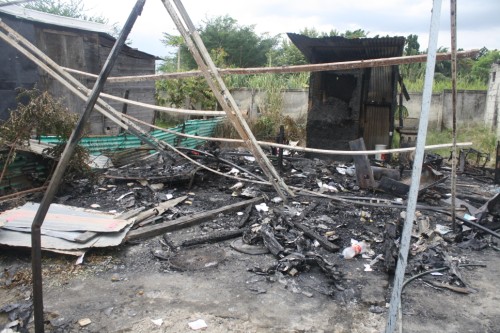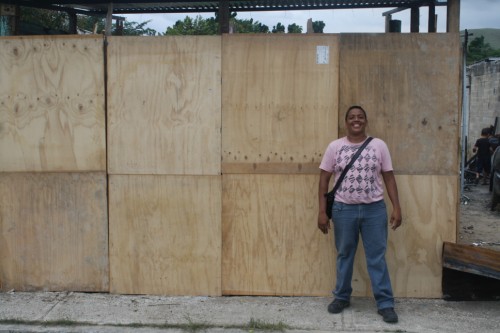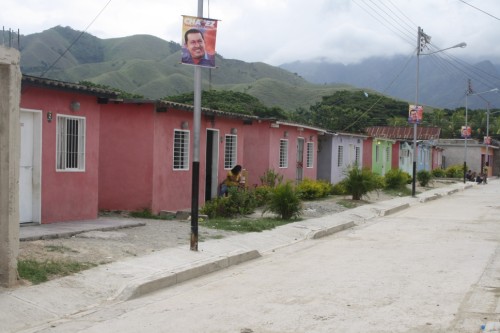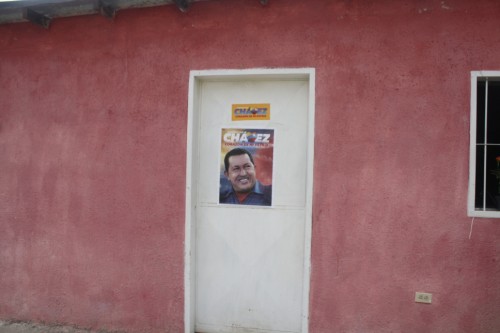On January 30, 2015, El Universal, one of the big three media set on overthrowing the elected government in Venezuela published an article with the bold headline, Poverty hits 48.4% of households in Venezuela. The formula has been in place for the last 15 years. From Venezuela’s private opposition newspapers and television channels, the attacks come in an unrelenting barrage against the Bolivarian Government which is then fed to Reuters and Associated Press, picked up by the likes of the Miami Herald, New York Times, Washington Post and other publications and spread around the world. We’ve decided to examine a recent attack by El Universal which along with El Nacional publishes venom against the government every single day. This El Universal article targets one of the core achievements of the Chávez and Maduro governments in the Bolivarian Revolution. In war, it’s common for insurgents to seek out the weak positions of their stronger enemy from rear and harass and bite at the flanks with sneak attacks. But in this case, a sworn enemy of the government uses the tactic of a full frontal attack in the media war, choosing to undermine and neutralize one of the Venezuelan governments finest and unassailable achievements: its dramatic reduction in poverty during the last 15 years, recognized by the United Nations, human rights groups, generally undenied by the corporate media and most importantly supported by the majority of the Venezuelan people. Unlike military battles, in media-wars the insurgents can attack the strongest positions of their enemy with the powerful weapon of illusion used to confound the unwary reader. The only way to fight them off is to expose their lies and disinformation, the purpose of this counter-attack. El Universal’s front line attack in this case cited, “A survey compiled by Andrés Bello University (UCAB, Catholic), Central University of Venezuela (UCV), and Simón Bolívar University (USB) which shows that the Venezuelan economic crisis, dominated by galloping inflation, was harsher on the most vulnerable sectors of the country last year.” Rather than using their typical rhetoric based upon hearsay, the opposition media borrows from the credibility and prestige of opposition universities to trumpet that the government’s social programs have failed and poverty is increasing in Venezuela. Sources Cited El Universal based its report on 3 sources: (1) the “survey” which they claim was conducted by the three universities; (2)The National Statistics Institute (INE) and (3) “another survey conducted back in 1998” which they do not identify and for which they no not provide a source. UCAB (Catholic University) based it’s report on (1) a “survey”; (2) “the last social study done by the Venezuelan State” and (3) “new research.” The UCAB report does not identify who conducted the survey, does not provide a source for “the last social survey done by the Venezuelan State” and says nothing more about the “new research" it cites. What is Poverty? The terms, “poverty” and “extreme poverty” are technical terms which should be well defined and used carefully, especially when conducting research and/or reporting indices in scientific journals and the media. Generally accepted definitions of the two terms follow: Extreme Poverty: Beneath the dramatic (and misleading) title, Poverty hits 48.4% of households in Venezuela, El Universal captions the leading photo with, “A survey found that 1.7 million households live in extreme poverty conditions.” In 1995, the United Nations defined extreme poverty as, “a condition characterized by severe deprivation of basic human needs, including food, safe drinking water, sanitation facilities, health, shelter, education and information. It depends not only on income but also on access to services” and a generally accepted definition established by the World Bank set the income level of those in extreme poverty at below $1.25 dollars a day (in 2005 values). Relative Poverty: UNESCO defines Relative Poverty, “in relation to the economic status of other members of the society: people are poor if they fall below prevailing standards of living in a given societal context.” But it cautions that both concepts of poverty are mainly concerned with “income and consumption” and that other factors should be considered such as basic needs being met and peoples’ ability to function within their society. Both, El Universal and the UCAB report use wording from both definitions interchangeably, either the result of incompetence or an attempt to maximize effect, portraying poverty in Venezuela as “really bad” and unimproved through the government’s missions and social programs. We will examine these problems below. El Universal News Report The El Univeral's January 30, "news" article headlined, Poverty hits 48.4% of households in Venezuela,” reports:
The "Survey": Our careful search of the UCV and USB university websites for the survey and/or reports on the survey bore no fruit. Was the survey conducted by all three universities as the El Universal report states or was it only one professor at UCAB (Catholic University)? We could not find any record of involvement in this survey by either UCV or USB. However, assume that all 3 universities did jointly conduct the survey. These three universities, UCAB, UCV and UCB are all autonomous universities dominated by the right wing opposition, as they have always been and especially since the advent of the former President Chávez and the Bolivarian government. Hence, the results of this survey are to be questioned from that political point of view. National Statistics Institute (INE): Our extensive search of the INE website for Venezuela reveals no such figures for 2013 and “one year later.” Therefore, until shown otherwise, we have to question the real source of El Universal and Associated Press for their numbers in the following statement, “households living in poverty amounted to 27.3% in the second half of 2013, versus 47% one year later (end of 2014).” Either these numbers came from a different source or they were simply fabricated from thin air by Venezuela’s largest private print media, known for its history of publishing false information about the Venezuelan government. We are fully persuaded that they do not appear in the INE source which they cited. Instead, the graph taken from the INE’s “Press Notes” (below) shows that the number of households living in poverty without basic needs met in 1998 were halved by the end of the first half of 2014, from 10.8 percent of the population in 1998 to 5.4 percent in 2014. Extreme Poverty 1998-2014
We have no argument with El Universal’s INE statement that “households living in poverty amounted to 27.3% in the second half of 2013. It’s based on income poverty. But the 47% poverty figure for 2014 headlined in the article is unsubstantiated. This dramatic 20 point increase in poverty claimed is the meat and marrow of El Universal’s propaganda. It is based upon the UCAB “survey” which states, “the last social study done by the Venezuelan State with results from new research.” What “new research?” Is the “new research” reported by the INE? - Not on the INE website. Is it some other “new research” that the author has discovered? If so, he does not document the source which is necessary if this dramatic figure is to believed. The next graph shows the changes to household income extreme poverty 2010 – 2013. It demonstrates how the net effect of the fluctuations in the poverty rate during 2012-2013 was to return the poverty rate to same level as early 2012, and not to lead to an overall increase in poverty levels. The El Universal report that the “poverty rate” increased by 20 points from 27.3% to 47%, 2013-2014 is false. But for just the sake of argument, imagine that it’s true. There are conditions under which the poverty rate has spikes for periods of time under extreme conditions. For example, in 2002-2003 as a result of the crisis caused by the managers’ shutdown of the petroleum industry, the poverty spiked to 55.2% in 2003 and the unemployment rate from 11.5% to 15.7% in 2002-2003. The increase in poverty to 47% falsely claimed by El Universal also would have taken place 2013-2014 under the extreme conditions of the economic attack when the opposition quintupled their prices based on the black market dollar. However, the rate of poverty and extreme poverty over the period from 1998 to 2014 has been in steady decline. The following INE graph shows for example the reduction in relative poverty and El Universal can hardly object to my source (the INE) because they use it as well. Relative Poverty 2010-2013
Referencing the graph that appears above, Ewen Robertson (Venezuela Analysis) writes on income poverty on Venezuelanalysis:
Other Variables Importantly, the 47% poverty figure for 2014, claimed by El Universal is not reflected in other economic variables that are available. First let’s look at the rate of inflation which rose from 25% in 2010 to to 63% in 2014 reported by the Institute of Public Accountants in Colombia (INPC Chart below). This dramatic increase was not a reflection of the classic demand & supply analysis which is generally used to explain changes in inflation. Rather it is a direct result of the US sponsored war on the Venezuelan economy that was waged in 2013 and 2014 when opposition retail markets fixed their prices on the price of the black market dollar which the opposition arbitrarily increased from about 45 bolivars per dollar in 2012 to 200 bolivars per dollar in 2014. How did they super-jack the price for illegal dollars to be bought and sold in Venezuela at such a rate, week after week? Simply by publishing the new daily price on Miami-based websites like dolarparalelo.org and dolartoday.com. (the government shuts them down inside Venezuela but they reopen under another address). INCP Chart on Inflation in Venezuela
But even this dramatic increase in manipulated inflation which is constantly headlined in the western media does not reflect the prices of foods and other basic needs under government price controls, made available to all people for the same period. Indices like these defy the 47% poverty figure for 2014 claimed to exist by El Universal: Prices for food and basic needs 2003-2014 (Central Bank of Venezuela)
These prices then must be compared with household incomes. In the following graph, the INE reported the prices of basic needs compared with the increase in the legal minimum wage. Since 1999, there have been legally enforceable wage increases. The government has on a consistent basis, year after year, increased the minimum wage to a level above the cost of "alimentacion" (food). So El Universal reports that "households living in poverty" jumped by 20 percentage points in one year when the increases in minimum wage over the years exceed the cost of basic needs and the unemployment rate (see INE chart on unemployment below) is at around 6 percent of the working age population. Variables such as these, rate of inflation, the minimum wage, the cost of food and decreased unemployment make it impossible for poverty or extreme poverty to have increased by 20 percentage in one year, 2013-2014. Prices compared with increases in Minimum Wage 1990-2014 (INE)
Another index that couples with the increase in minimum wages ahead of prices is the unemployment rate. Unemployment peaked in 2002-2003 largely as a result of the manager’s walkout/shutdown of PDVSA, the national oil industry, declining steadily from then to November, 2014 where it stands today at around 6 percent . Unemployment Rate 1999-2014 (INE)
Another variable that must be considered is growth of the population from 23,482,700 in 1998 to 30,405,207 by 2014, an increase of 7 million people. Therefore, a decrease in the rate of extreme poverty reflects an increased number of people lifted out of extreme poverty through the intervening years, about a 50% reduction since 1998 and the lowest level in the history of the Republic since the government began keeping records in 1960. So it’s important to look at El Universal’s “punch line” - “Conducted among 1,500 households in September-October 2014, the survey further found that 1.7 million households live in extreme poverty conditions.” This is statement is not accidental. Taken out of context, reporting this number of 1.7 million families in extreme poverty in a simple statement is designed to leave readers with a very negative impression about the economy, the effectiveness of socialism and living conditions in Venezuela. Based on this rubbish, El Universal went on to assert that, “Out of the 3.53 million households living in [undefined] poverty in 2014, ‘the new poor’ account for 33%.” Sounds impressive but it's a house built on sand. Finally, El Universal also uses “another survey conducted back in 1998," supposedly showing that “households living in poverty totaled 45%.” They apparently meant to compare this 1998 figure of 45% in undefined poverty with their spurious figure of 47% today, a two percent increase in households living in poverty. El Universal provides no source for the “another survey” alleged to have been conducted in 1998. Even to the casual reader, this is not journalism, it’s a patchwork of unsubstantiated claims painted with the legitimacy of 3 universities who they claim conducted “a survey." All these indices, the inflation rate, price index, minimum wage, unemployment rate and population must be combined and also viewed in the context of the ongoing war on the Venezuelan economy if the rate of poverty and extreme poverty is to be measured honestly and understood. The UCAB (Catholic University) Survey Report The UCAB was the only university source found to report on this survey and they did so on their university website. UCAB’s sociologist Luis Pedro España reported the survey:
Enter Professor Luis Pedro España
UCAB, produced their report on the “study of general living conditions of the Venezuelan population,” challenging the effectiveness of the social missions in a report by Luis Pedro España titled, “Social missions have limited scope.” España stated that the, “policies of social aid barely reach 10% of the citizenship and 3.5 million households are unable to meet their essential needs. He claimed that, “the social programs implemented by the government do not have a broad a scope as they are given credit for having.” He claims that the survey questioned 1,500 households throughout the country, a “panorama of the population served that is not necessarily the most excluded or impoverished.” He stated that according to the results of their survey, 49% of those receiving benefits of the missions are not in a condition of poverty and barely 8.4 % are considered to be in extreme poverty. What is his definition of "poverty" and 'extreme poverty?" In either case, España concluded,
So in effect, this UCAB sociologist admits that 49% of the people surveyed were not at all people living in poverty or extreme poverty in order to complain that the 49% are receiving benefits from the social missions to which they are not entitled? In fact, there are millions of Venezuelans who benefit from social missions in subsidized food, health care, education and other benefits who are working and live above the poverty line. Taking it a step farther, the middle class and wealthy also shop and buy groceries and other household items at Misión Mercal and Pdval. So what. The wealth that subsidizes these products comes from the oil industry that belongs to them too! Does España also benefit from the low price of gasoline for his car? Of course he does! UCAB's Professor Luis Pedro España sounds like a Republican Party member in the United States who complains that a low income family receiving food stamps or that a retired U.S. citizen who receives Medicare from “big government” doesn’t deserve it and should be denied benefits! But it shouldn’t surprise us that España’s position is aligned with political positions taken by the U.S. government against their own people. Also based on the survey, Professor España complains that "people receive benefits from the missions, benefits which are in other societies achieved with work." Again, it’s the same argument used to attack the poor in the “welfare to work” program signed into law by Bill Clinton in 1996 with his infamous declaration to, "end welfare as we have come to know it." The generous professor gave an example of people above the poverty line receiving what he deems to be undeserved, “housing or household appliances.” He’s obviously referring to PDVAL which uses petroleum dollars to provide Venezuelans with discounted kitchen refrigerators and stoves and to Venezuela’s flagship housing project, Gran Misión Vivienda. Mission Vivienda, has built nearly 700,000 new homes to date and plans 2-3 million more for people who are approved by the government to receive them. Is it not the people's petroleum that pays for these things? The first tranche of homes went to thousands of families who lost their homes in the devastating floods. Thereafter, new homes are built for people based on need. Story of a Venezuelan in need of a house: My friend Hamilton, a taxi driver, lives alone with his two young sons, both under age 10, in a town near Valencia. Two years ago, an electrical fire burned their tiny “rancho” to the ground. The fire also burned out the engine compartment and interior of his old Toyota taxi, his means of income, that was parked alongside the house. What is poverty? He works, makes a living for himself and his two sons but could by no means afford to purchase or build a house for his family. His neighbors, friends at his church and family helped him throw up plywood exterior walls and install a used stove, refrigerator and three beds in the humble dwelling where he temporarily lives with his two little boys.
Hamilton is one of many on the list with Gran Misión Vivienda to receive a new home and he’s proud to show me with no trace of envy, the new homes that one by one, his neighbors gradually have received from the mission where they happily live with photos of President Chávez inside and out. He understands that the government cannot build 3 million homes in a day.
Oh my, Poor Professor España, positioned well in a major university, a man of entitlement and means, wanting to deny Hamilton and his sons a new home equipped with three bedrooms, modern kitchen, living room and 2 baths, equipped with a cooking stove, refrigerator, clothes washer and dryer. So when the good professor goes on to claim that his survey shows, “that 57% of the respondents who do not have the benefit of the missions ensures that they'd like to be beneficiaries of these,” he deceptfully ignores the fact that every person in need cannot receive all these benefits in a single moment or a single year. Of course there would be respondents to a survey who do not receive "all these benefits" at any one time. It is utterly mind-boggling when we consider the amazing achievements of the Chávez-Maduro government in a spare 15 years with a people, colonized and oppressed for centuries, leaving the Venezuelan people in rampant poverty, undernourished, politically powerless and many illiterate or without an elementary education before Chávez came to power. Chávez' first commitment to the people was to provide them with free education, K-University. For example, I have a friend, Yusmary, mother of two children, who helps with our data collection for our series, "US Covert War on Venezuela 2015." Because of Chávez' Mission Robertson, she finished high school and is now enrolled in university. Another friend, Ruben Barrios worked as a carpenter and now a licensed criminal lawyer. Ruben credits Chavez for his opportunity to complete the 5 year program in law school and his current post graduate studies. Here in Venezuela, we often see institutions like these opposition universities and anti-government media visit the poor and elicit complaints from them about their personal and family needs and then convert those complaints into “the government is inefficient, corrupt and not serving the poor.” It's cynical and selfish, pure and simple. Writing as a psychologist, I can't help but see them as sociopaths - no compassion, no conscience, no remorse. The UCAB report went on to say, “The researcher (España) warned that there are now 3 and a half million homes with difficulties to meet their needs.” So from that, perhaps the reader can appreciate Professor Luis Pedro España's deep concern, agonizing over the plight of the poor, keeping him awake at night. It shouldn't be lost on anyone that his last name translates: "Spain," the first country to rape Venezuela, followed by a list of others, currently the United States Government. The correct way to conduct and report a survey Surveys are only considered to be credible when meeting certain social-scientific standards. When conducting and reporting the results of polls and surveys, it is essential to describe the methods with which they were conducted. Typical research standards require: that the purpose of the survey be defined; that the population surveyed be identified; that the sample size be adequate (i.e. large enough to represent that population); a stratified random sample is a standard used most commonly in research (a random selection covering all strata of the population examined); that the method for collecting the data be specified (e.g. by telephone, mail, fax, email, computer-assisted, in person, in groups); that data collection instruments should be pre-tested for test reliability and validity. Reliability is the degree to which an assessment tool produces stable and consistent results and validity refers to how well a test measures what it is purported to measure. The Book on Survey Questions Then there are the questions asked of participants in the survey: do individuals being surveyed have the required knowledge; are individuals likely to be willing to provide accurate information; how many participants in the sample responded and declined to participate; do the questions asked, fulfill the research objectives; questions should be kept short and simple; the question should only ask one question; the question must be worded appropriately for the target population; the question must be clear, precise and ambiguous; the question should be easy to understand; unnecessary adjectives, adverbs, negatives and double negatives should be avoided; emotionally loaded words should not be used; words used should minimize “socially-accepted” responses; the wording should not lead the respondent one way or another; the wording should not make unwarranted assumptions; wording should follow a natural order from the previous question. Closed questions (e.g. multiple choice): they should include all likely answers from which the respondent can choose; the answers should be mutually exclusive (no overlap); the answer set should include a “Don’t Know” or “No Opinion” option. Is a recall question within the respondent’s memory capability; will the respondent feel uncomfortable asking the question; are some answers more socially acceptable than others …. and more. Questions about the UCAB Survey The actual "survey" (which we haven't yet seen), is reported with no information whatsoever regarding these required standards. The authors of the alleged survey about poverty in Venezuela, which has received so much attention in the international media, provide no information on how it was conducted. What questions were asked? How were they asked? By email? By telephone? In person? How were the questions designed and who wrote them? How were the questions asked and who asked them? If asked on the telephone, what was the tone of the caller’s voice, neutral or leading? How many of the poorer population refused to answer? (probably many). Over what period of time was the survey conducted? How was the data analyzed and reported? You get the idea. Conclusion: A Groundless Frontal Attack on the Government Neither the El Universal nor UCAB provided any credible data to support their conclusions. Associated Press picked it up on que and spread it around the world in an attempt to destroy one of the greatest accomplishments of former President Hugo Chávez and current President Nicolas Maduro in the Bolivarian Revolution which has led the fight against U.S. imperialism in Latin America and the world over. This full frontal attack in the media war against Venezuela is groundless. In the words of a typical campesino in Guarico State, the survey and reports by Professor Luis Pedro Español, El Universal and Associated Press are “mierda de torro” – unmitigated bullshit. We know the enemy won’t go away, whether by propaganda media, infiltration or violence. They will continue with their lies and violence as long as they profit from them either by funding from the U.S. State Department or by hateful media, advertising to their constituencies who are bent on overthrowing the democratically elected government. But know this. The war is also fought in the trenches of the internet by media warriors who take time to educate themselves, expose the lies and report the truth about what’s really happening in The Bolivarian Republic of Venezuela. Please check out our new series, US Covert War in Venezuela 2015 led by Arturo Rosales, found in the upper left corner of each Axis of Logic page where we are reporting daily with facts and evidentiary photos of the running coup in Venezuela. In whatever way you can, big or small, support the Bolivarian Revolution that brings worldwide hope in the midst of imperial surveillance, state terror and domestic militarism, oppression and war. Biography,
Essays and Poetry by Les Blough © Copyright 2015 by AxisofLogic.com This material is available for republication as long as reprints include verbatim copy of the article in its entirety, respecting its integrity. Reprints must cite the author and Axis of Logic as the original source including a "live link" to the article. Thank you! |
